
Kathryn Grayson was an American actress and coloratura soprano.

Dorothy Lamour was an American actress and singer. She is best remembered for having appeared in the Road to... movies, a series of successful comedies starring Bing Crosby and Bob Hope.

Clifton Avon "Cliff" Edwards, nicknamed "Ukulele Ike", was an American actor, musician and singer. He enjoyed considerable popularity in the 1920s and early 1930s, specializing in jazzy renditions of pop standards and novelty tunes. He had a number one hit with "Singin' in the Rain" in 1929. He also did voices for animated cartoons later in his career, and he is best known as the voice of Jiminy Cricket in Walt Disney's Pinocchio (1940) and Fun and Fancy Free (1947), and Dandy (Jim) Crow in Walt Disney's Dumbo (1941).

Penny Singleton was an American actress and labor leader. During her 60-year career, Singleton appeared as the comic-strip heroine Blondie Bumstead in a series of 28 motion pictures from 1938 until 1950 and the popular Blondie radio program from 1939 until 1950. Singleton also provided the voice of Jane Jetson in the animated series The Jetsons from 1962 to 1963.
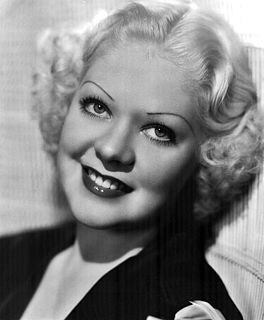
Alice Faye was an American actress and singer. A musical star of 20th Century-Fox in the 1930s and 1940s, Faye starred in such films as On the Avenue (1937) and Alexander's Ragtime Band (1938). She is often associated with the Academy Award–winning standard "You'll Never Know", which she introduced in the 1943 musical film Hello, Frisco, Hello.

Hugh Milburn Stone was an American actor, best known for his role as "Doc" on the CBS Western series Gunsmoke.

Lillian Randolph was an American actress and singer, a veteran of radio, film, and television. She worked in entertainment from the 1930s until shortly before her death. She appeared in hundreds of radio shows, motion pictures, short subjects, and television shows.

Judy Canova, born Juliette Canova, was an American comedian, actress, singer, and radio personality. She appeared on Broadway and in films. She hosted her own self-titled network radio program, a popular series broadcast from 1943 to 1955.
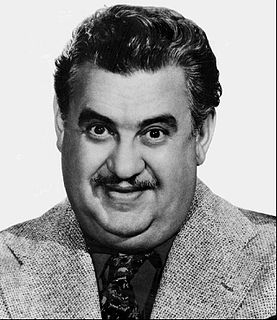
William Gilbert Barron was an American actor, comedian, director and writer. He was known for his comic sneeze routines. He appeared in over 200 feature films, short subjects and television shows beginning in 1929.

Julia Frances Newbern-Langford was an American singer and actress who was popular during the Golden Age of Radio and made film and television appearances for over two decades.
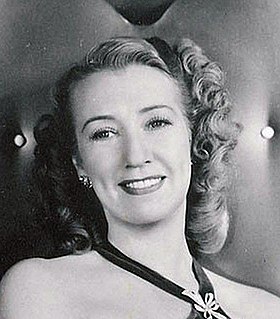
Edith Marie Blossom MacDonald, also known as Blossom Rock, was an American actress of vaudeville, stage, film and television. During her career she was also billed as Marie Blake or Blossom MacDonald. Her younger sister was screen actress and singer Jeanette MacDonald. Rock is probably best known for her role as "Grandmama" on the 1960s macabre/black comedy sitcom The Addams Family.

Gloria Jean was an American actress and singer who starred or co-starred in 26 feature films from 1939 to 1959, and made numerous radio, television, stage, and nightclub appearances. She is probably best remembered today for her appearance with W.C. Fields in the film Never Give a Sucker an Even Break (1941).

Pert L. Kelton was an American stage, movie, radio, and television actress. She was the first actress who played Alice Kramden in The Honeymooners with Jackie Gleason and earlier, during the 1930s, was a prominent comedic supporting and leading actress in Hollywood films such as Gregory La Cava's Bed of Roses with Constance Bennett and Raoul Walsh's The Bowery with Wallace Beery and George Raft. She performed in a dozen Broadway productions between 1925 and 1968. However, her career was interrupted in the 1950s as a result of blacklisting, leading to her departure from The Honeymooners.
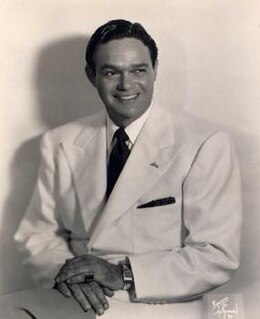
James Melton, a popular singer in the 1920s and early 1930s, later began a career as an operatic singer when tenor voices went out of style in popular music around 1932–35. His singing talent was similar to that of his contemporary Richard Crooks and baritones John Charles Thomas and Nelson Eddy who sang popular music but also had operatic careers.

Ferris Taylor was an American film actor and vaudeville performer.
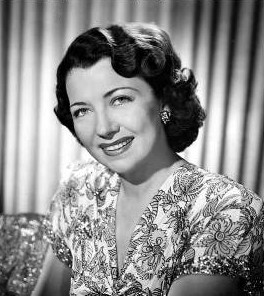
Barbara Jo Allen was an American actress. She was also known as Vera Vague, the spinster character she created and portrayed on radio and in films during the 1940s and 1950s. She based the character on a woman she had seen delivering a PTA literature lecture in a confused manner. As Vague, she popularized the catch phrase "You dear boy!"
Walter Cassel was an American operatic baritone and actor. He began his career singing on the radio during the mid-1930s and appeared in a couple of Hollywood musical films in the late 1930s. He made his first stage appearances in a handful of Broadway productions during the late 1930s and early 1940s. He began his opera career at the Metropolitan Opera in 1942, and went on to have a long and fruitful association with that house that lasted until his retirement from the stage in 1974. In addition to working with the Met, Cassel was also a regular performer with the New York City Opera between 1948 and 1954 and worked frequently as a freelance artist with important opera companies on the international stage as well as in the United States.

Jane Morgan was a British-born American actress and singer whose career encompassed concert halls, vaudeville, the legitimate stage, radio, television, and film, best known as Eve Arden's nosy landlady Mrs. Davis on the radio and television versions of Our Miss Brooks.

Annamary Dickey, also known as Annamary Dickey Laue, was an American soprano and actress in operas, operettas, musicals, night clubs, and concerts who had an active performance career from the 1930s through the 1960s. She began her career as a regular performer with the Chautauqua Opera and the St. Louis Municipal Opera in the mid to late 1930s. In 1939 she won the Metropolitan Opera Auditions of the Air which earned her a contract with the Metropolitan Opera (Met). She was a soprano in mainly secondary roles at the Met from 1939 to 1944; appearing in productions of Gluck's Orfeo ed Euridice, Massenet's Manon, Delibes' Lakmé, Charpentier's Louise, Bizet's Carmen, Der Rosenkavalier by Richard Strauss, Mozart's The Marriage of Figaro, and Smetana's The Bartered Bride. Her most significant role at the Met was as Musetta in Puccini's La bohème. A strikingly beautiful woman with a passion for fashionable clothes, she gained the moniker the "Glamour Girl of the 'Met'" and headlined a fashion campaign for Saks Fifth Avenue in 1945.

Jan Duggan was an American film and stage actress.



















